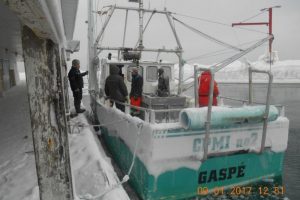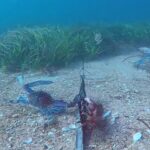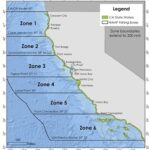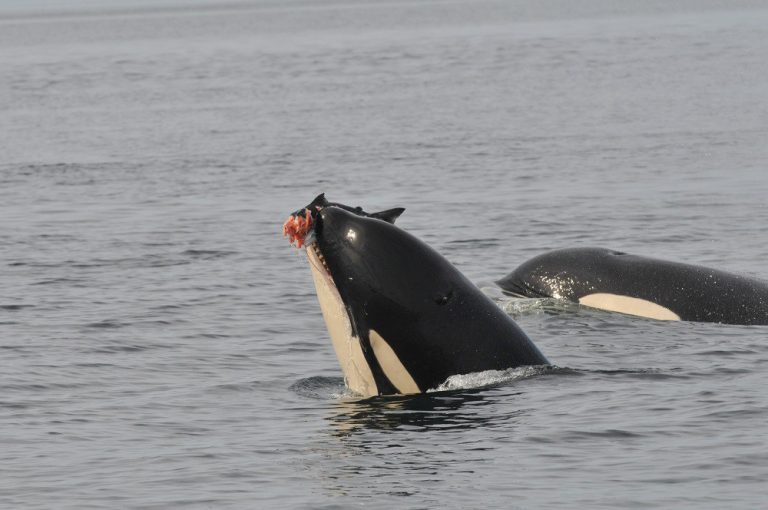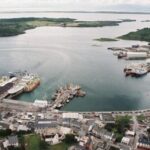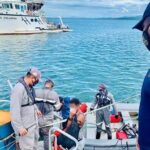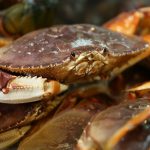Tag Archives: World Wildlife Fund
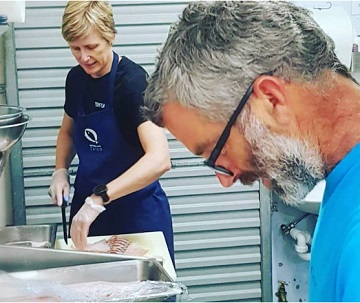
Fisheries scientist fears fish and chip prices will increase following gillnet fishing ban
For decades, fishers in Queensland have used large rectangular gillnets in creek mouths to catch barramundi, threadfin, and other popular table fish. But this week the Queensland and federal governments announced a ban on the practice by 2027, after conservationists raised concerns about the impact of the nets on dugongs, turtles, and sharks. The move has infuriated the fishing industry, which warns fresh Australian fish will be taken off the market and replaced with overseas farmed products. Fisheries scientist and commercial fisher Andrew Tobin said the industry was “completely blindsided” by the ban. >click to read< 08:14
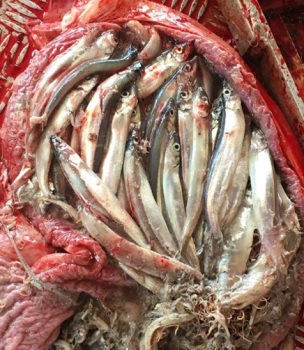
5 miles of seals: Newfoundland fisherman’s video fires up more debate about pinnipeds
Fisherman Jason Branton was steaming home after a crab fishing trip a week ago when he saw something he’d never witnessed before. The 45-ft longliner Gracie’s Adventure was about 60 miles out from Baccalieu Island, in Trinity Bay, on May 30 when Branton and the crew noticed seals all around them. They had encountered a large herd of seals, a patch about five miles wide,, adding this is also the time when capelin begin migrating inshore. Branton and his crew rely mainly on crab, capelin and cod for their fishing income. The question of the impact of seals on fish and shellfish stocks has been debated for years and become more heated in recent years,,, video, >click to read< 10:23
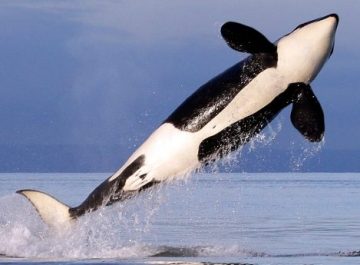
Conservationists want emergency order to save killer whales off B.C. coast
Several conservation groups say the federal government’s failure to issue an emergency order reducing threats to endangered orcas off the B.C. coast ahead of fishing and whale-watching season could mean the species’ extinction. The organizations say Fisheries Minister Dominic LeBlanc and Environment Minister Catherine McKenna had not recommended an emergency order to cabinet by March 1, which could have seen priority feeding refuges established, fishing restricted and speed reductions for commercial vessels put in place for the season. >click to read< 19:35
Fisheries group blasts drilling regulations proposal ‘nobody knows about’
 A Nova Scotia-based fisheries organization is raising concerns about changes the federal government is quietly proposing to the regulations governing oil and gas extraction in Canada’s offshore and northern regions. Environmental and fisheries groups say they only found out about the proposed changes by happenstance, even though the consultation process has been ongoing for over a year and is nearly complete. Consultation on the third phase of the initiative closes Sept. 20. John Davis, the director of Clean Ocean Action Committee, said his group was told about the initiative by the World Wildlife Fund, which only learned of it this summer. click here to read the story 16:54
A Nova Scotia-based fisheries organization is raising concerns about changes the federal government is quietly proposing to the regulations governing oil and gas extraction in Canada’s offshore and northern regions. Environmental and fisheries groups say they only found out about the proposed changes by happenstance, even though the consultation process has been ongoing for over a year and is nearly complete. Consultation on the third phase of the initiative closes Sept. 20. John Davis, the director of Clean Ocean Action Committee, said his group was told about the initiative by the World Wildlife Fund, which only learned of it this summer. click here to read the story 16:54
Fishing chiefs insist the industry is doing all it can to adhere to the discard ban
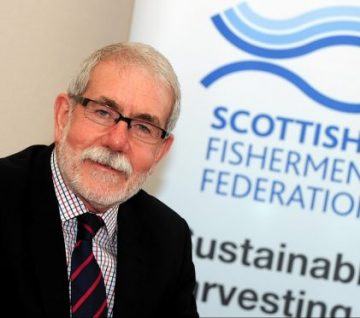 The Scottish Fishermen’s Federation (SFF) insisted fishers were doing “everything possible” to comply with the rules following claims by conservation group WWF the ban is being undermined by poor enforcement. SFF chief executive Bertie Armstrong said: “No-one hates discarding more than our fishermen, who are making a comprehensive effort to comply with this largely unworkable regulation. “Fishermen are doing everything possible to adhere to the rules, and industry and government are working closely together to develop more selective types of fishing gear that will reduce discarding even further. “Installing cameras on fishing vessels is no more than a side show and the presence or absence of them will not solve the problem. The real issue is getting the rules right and the proper refinements in place.” Read the rest here 16:57
The Scottish Fishermen’s Federation (SFF) insisted fishers were doing “everything possible” to comply with the rules following claims by conservation group WWF the ban is being undermined by poor enforcement. SFF chief executive Bertie Armstrong said: “No-one hates discarding more than our fishermen, who are making a comprehensive effort to comply with this largely unworkable regulation. “Fishermen are doing everything possible to adhere to the rules, and industry and government are working closely together to develop more selective types of fishing gear that will reduce discarding even further. “Installing cameras on fishing vessels is no more than a side show and the presence or absence of them will not solve the problem. The real issue is getting the rules right and the proper refinements in place.” Read the rest here 16:57
World Wildlife Fund warns planet could be out of fish by 2048
If you’re eating fish just for the halibut, maybe it’s time to rethink your see-food habits. According to the latest World Wildlife Fund , our oceans are running out of fish. “Unless the current situation improves,” WWF says, citing statistics from a 10-year-old research article, “stocks of all species currently fished for food are predicted to collapse by 2048.” The global fishing fleet, it says, is “2-3 times larger than what the oceans can sustainably support” — meaning the industry is taking more fish out of the sea than the ones it leaves behind can replace. According to international NGO, 53 percent of the world’s fisheries — the places where fish are caught — are “fully exploited,” and another 32 percent are “overexploited, depleted or recovering from depletion…. Read the rest here! 15:05
, our oceans are running out of fish. “Unless the current situation improves,” WWF says, citing statistics from a 10-year-old research article, “stocks of all species currently fished for food are predicted to collapse by 2048.” The global fishing fleet, it says, is “2-3 times larger than what the oceans can sustainably support” — meaning the industry is taking more fish out of the sea than the ones it leaves behind can replace. According to international NGO, 53 percent of the world’s fisheries — the places where fish are caught — are “fully exploited,” and another 32 percent are “overexploited, depleted or recovering from depletion…. Read the rest here! 15:05
The election has enviro groups all worked up! – Reactions to Trump victory trickle in from seafood industry
 Seafood companies and industry groups have begun to issue statements and responses to the election of Donald Trump as president of the United States. Trump has said little about the seafood industry directly, but he has expressed favor for policies that reduce environmental barriers preventing the further development American industry, which may lead to changes in the management of U.S. fisheries. Trump has also taken a strong stand against free-trade agreements, and if he acts on pledges to scuttle the Trans-Pacific Partnership framework, add tariffs on Chinese imports and renegotiate or withdraw from the North America Free Trade Agreement, it will likely have an significant effect on the global seafood trade.,, Fred Krupp, the president of nonprofit advocacy group Environmental Defense Fund (EDF), posted his thoughts on the election in a blog post on EDF’s website. “The election of Donald Trump has profoundly altered the landscape in which environmentalists work. While environmental issues weren’t central to the campaign, President-elect Trump took positions during the campaign that were directly counter to ours — and contradicted by science,” Krupp wrote. “We are still assessing the challenges that lie ahead, but this much is clear: The next few years will bring some big fights and also some unpredictable fluidity.” World Wildlife Fund President and CEO Carter Roberts also issued a statement,,, Read the story here 13:53
Seafood companies and industry groups have begun to issue statements and responses to the election of Donald Trump as president of the United States. Trump has said little about the seafood industry directly, but he has expressed favor for policies that reduce environmental barriers preventing the further development American industry, which may lead to changes in the management of U.S. fisheries. Trump has also taken a strong stand against free-trade agreements, and if he acts on pledges to scuttle the Trans-Pacific Partnership framework, add tariffs on Chinese imports and renegotiate or withdraw from the North America Free Trade Agreement, it will likely have an significant effect on the global seafood trade.,, Fred Krupp, the president of nonprofit advocacy group Environmental Defense Fund (EDF), posted his thoughts on the election in a blog post on EDF’s website. “The election of Donald Trump has profoundly altered the landscape in which environmentalists work. While environmental issues weren’t central to the campaign, President-elect Trump took positions during the campaign that were directly counter to ours — and contradicted by science,” Krupp wrote. “We are still assessing the challenges that lie ahead, but this much is clear: The next few years will bring some big fights and also some unpredictable fluidity.” World Wildlife Fund President and CEO Carter Roberts also issued a statement,,, Read the story here 13:53
Pimpin’ the Panda! Four Corners questions WWF’s credibility
 THE World Wildlife Fund (WWF) has come under fire after an ABC Four Corners report exposed WWF charges a large fee to use its Panda conservation logo as an endorsement of responsible practise and sustainability. It was revealed in secret documents leaked to the ABC that Tassal, Tasmania’s largest salmon producer, will pay the WWF about $250,000 each year over the next three years to use the WWF Panda logo and another $250,000 to use the Aquaculture Stewardship Council (ASC) label, which Tassal’s competitors believe gives it a huge commercial advantage. ABC’s Caro Meldrum-Hanna questioned how consumers can have confidence in Tassal’s product if the company paid for the WWF endorsement. WWF Australia CEO Dermot O’Gorman denied this payment compromised trust and maintained the WWF is the benchmark of conservation research. Read the rest here 09:13
THE World Wildlife Fund (WWF) has come under fire after an ABC Four Corners report exposed WWF charges a large fee to use its Panda conservation logo as an endorsement of responsible practise and sustainability. It was revealed in secret documents leaked to the ABC that Tassal, Tasmania’s largest salmon producer, will pay the WWF about $250,000 each year over the next three years to use the WWF Panda logo and another $250,000 to use the Aquaculture Stewardship Council (ASC) label, which Tassal’s competitors believe gives it a huge commercial advantage. ABC’s Caro Meldrum-Hanna questioned how consumers can have confidence in Tassal’s product if the company paid for the WWF endorsement. WWF Australia CEO Dermot O’Gorman denied this payment compromised trust and maintained the WWF is the benchmark of conservation research. Read the rest here 09:13
WWF calls for shut down of commercial fishing to save Pacific bluefin tuna
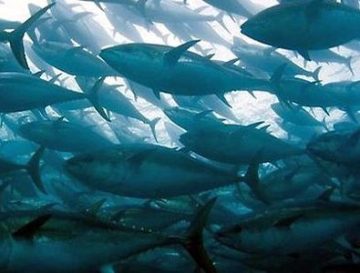 World Wildlife Fund (WWF) has called for the suspension of commercial fishing to save Pacific bluefin tuna because of the inaction of responsible agencies in addressing the decrease in stock. WWF Oceans and Seafood group leader Dr Aiko Yamauchi said members of the Northern Committee (NC) of the Western and Central Pacific Fisheries Commission (WCPFC) have failed to agree to an urgently-needed recovery plan to save Pacific bluefin tuna. WCPFC was established by the Convention for the conservation and management of highly migratory fish stocks in the Western and Central Pacific Ocean “Because of the lack of progress and the repeated inaction of the responsible bodies, the Pacific bluefin stock will continue to teeter on the edge of collapse,” Dr Yamauchi said. “We call for a full suspension of commercial fishing of this species until a Pacific-wide rebuilding and management plan has been agreed. Link 14:35
World Wildlife Fund (WWF) has called for the suspension of commercial fishing to save Pacific bluefin tuna because of the inaction of responsible agencies in addressing the decrease in stock. WWF Oceans and Seafood group leader Dr Aiko Yamauchi said members of the Northern Committee (NC) of the Western and Central Pacific Fisheries Commission (WCPFC) have failed to agree to an urgently-needed recovery plan to save Pacific bluefin tuna. WCPFC was established by the Convention for the conservation and management of highly migratory fish stocks in the Western and Central Pacific Ocean “Because of the lack of progress and the repeated inaction of the responsible bodies, the Pacific bluefin stock will continue to teeter on the edge of collapse,” Dr Yamauchi said. “We call for a full suspension of commercial fishing of this species until a Pacific-wide rebuilding and management plan has been agreed. Link 14:35
Ray Hilborn: Seafood sustainability, certification ‘about money’
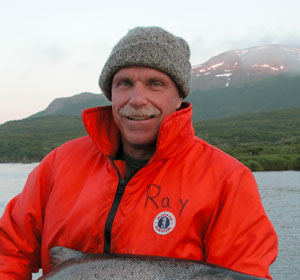 Seafood sustainability and certification is “about money and value – science has largely been lost”. So claims Ray Hilborn, a professor in the School of Aquatic and Fishery Sciences at the University of Washington. Commenting on CFOOD on recent criticisms made by the World Wildlife Fund (WWF) on the Global Seafood Sustainability Initiative (GSSI), Hilborn said seafood sustainability, “at its core, is about the ability to produce food from the sea in the long term.” However, he argued, “the most interesting development in seafood sustainability is the force driving certification, and — spoiler alert — it isn’t consumers. Read the rest here 13:59
Seafood sustainability and certification is “about money and value – science has largely been lost”. So claims Ray Hilborn, a professor in the School of Aquatic and Fishery Sciences at the University of Washington. Commenting on CFOOD on recent criticisms made by the World Wildlife Fund (WWF) on the Global Seafood Sustainability Initiative (GSSI), Hilborn said seafood sustainability, “at its core, is about the ability to produce food from the sea in the long term.” However, he argued, “the most interesting development in seafood sustainability is the force driving certification, and — spoiler alert — it isn’t consumers. Read the rest here 13:59Federal officials plan to track every fish and crustacean shipped to U.S. ports
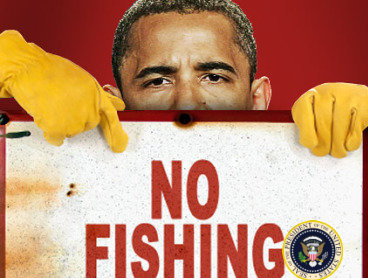 Before any seafood enters the U.S. market, officials said, it must contain information that federal, state and local officials currently do not ask for: its origin, who caught it, when and with what. That data can be taken by any federal, state and local authority at a port and submitted to a central database for tracking. Conservationist groups that pushed the administration to better protect global fishing stocks for years cheered the report. Michele Kuruc, vice president of ocean policy for the , called it historic. Read the rest here 12:37
Before any seafood enters the U.S. market, officials said, it must contain information that federal, state and local officials currently do not ask for: its origin, who caught it, when and with what. That data can be taken by any federal, state and local authority at a port and submitted to a central database for tracking. Conservationist groups that pushed the administration to better protect global fishing stocks for years cheered the report. Michele Kuruc, vice president of ocean policy for the , called it historic. Read the rest here 12:37
Big mammals vs. big oil: New pipeline puts humpback whales at risk
 In a deep fjord in British Columbia called the Douglas Channel, where the Kitimat River pours runs of Chinook salmon into the Pacific Ocean, fishermen see singing humpback whales fling themselves into the air. Now the humpbacks are the flashpoint of an environmental battle. Environmentalists cried foul last month when the Canadian government stripped the whales of protections,,Read more here 20:58
In a deep fjord in British Columbia called the Douglas Channel, where the Kitimat River pours runs of Chinook salmon into the Pacific Ocean, fishermen see singing humpback whales fling themselves into the air. Now the humpbacks are the flashpoint of an environmental battle. Environmentalists cried foul last month when the Canadian government stripped the whales of protections,,Read more here 20:58
Why are so many white men trying to save the planet without the rest of us?
 Just the other day, the National Wildlife Federation announced its new president – a white male “whiz kid”. Last month, the Climate Reality Project, founded by Al Gore, replaced its female chief executive with a white man. Last November, the National Parks and Conservation Association replaced its veteran leader with another white male. The Union of Concerned Scientists is due to announce its new leader as early as next week. Spoiler alert: it’s not going to be a woman. Read more here 10:53
Just the other day, the National Wildlife Federation announced its new president – a white male “whiz kid”. Last month, the Climate Reality Project, founded by Al Gore, replaced its female chief executive with a white man. Last November, the National Parks and Conservation Association replaced its veteran leader with another white male. The Union of Concerned Scientists is due to announce its new leader as early as next week. Spoiler alert: it’s not going to be a woman. Read more here 10:53
Walton Family Foundation Dumped $91.4 Million Into Greenwashing in 2012: Walmarting the Rivers and Oceans
 Walmart has been in the headlines in recent weeks after the retailer announced plans to keep its stores open this Thanksgiving, forcing Walmart employees to cancel many of their holiday plans. Walmart, the country’s largest retailer and employer, makes more than $17 billion in profits annually, so it has a lot of money to dump into “environmental” groups that serve its agenda of privatization of the public trust. The wealth of the Walton family totals over $144.7 billion – equal to that of 42% of Americans. must read more@truthout.org 17:22
Walmart has been in the headlines in recent weeks after the retailer announced plans to keep its stores open this Thanksgiving, forcing Walmart employees to cancel many of their holiday plans. Walmart, the country’s largest retailer and employer, makes more than $17 billion in profits annually, so it has a lot of money to dump into “environmental” groups that serve its agenda of privatization of the public trust. The wealth of the Walton family totals over $144.7 billion – equal to that of 42% of Americans. must read more@truthout.org 17:22
Seafood certification – who’s really on first? Nils Stolpe
![]() “Sustainability certification” has become a watchword of people in the so-called marine conservation community in recent years. However, their interest seems to transcend the determination of the actual sustainability of the methods employed to harvest particular species of finfish and shellfish and to use the certification process and the certifiers to advance either their own particular agendas or perhaps the agendas of those foundations that support them financially. continued here
“Sustainability certification” has become a watchword of people in the so-called marine conservation community in recent years. However, their interest seems to transcend the determination of the actual sustainability of the methods employed to harvest particular species of finfish and shellfish and to use the certification process and the certifiers to advance either their own particular agendas or perhaps the agendas of those foundations that support them financially. continued here
The Marine Stewardship Council (MSC) is the largest international organization – headquartered in London – providing fish and seafood sustainability certification. It was started in 1996 as a joint effort of the World Wildlife Fund, a transnational ENGO, and Unilever a transnational provider of consumer goods.
David and Lucille Packard Foundation, Marine Stewardship Council (MSC), Monterey Bay Aquarium, National Park Service, NOAA, Obama Victory Fund., Park Service Director Jonathan Jarvis, Resources Legacy Foundation, Senator Lisa Murkowski, The Writings of Nils Stolpe, US Department of the Interior, Walmart, Walton Family Foundation, World Wildlife Fund
Why Aren’t Environmental Groups Divesting from Fossil Fuels? Some of big green’s most powerful players still invest in energy companies.
THEY ARE STEALING OUR OCEAN. FOR PROFIT!!! SOME BUYING FISH QUOTA!!Why do some of the largest environmental organizations still invest in fossil fuels? As outlined in my new piece, Time for Big Green to go Fossil Free, organizations such as The Nature Conservancy and the Wildlife Conservation Society aren’t taking the simple step of divesting their large endowments and publicly traded investments from energy corporations. Below is a cheat sheet (not comprehensive) for how much money big green groups are investing and for who is—and who isn’t—getting their financial house in order. continued
Limits set on bigeye tuna catches in Pacific – World Wildlife Fund says move by fishing panel doesn’t go far enough. Yeah yeah. We know.
The WWF’s Peter Trott criticized the system, saying plans to put monitors on boats would cover as little as 5 percent of the fishing fleets for all but two months of the year. It will make it almost impossible to prevent countries from underreporting their catches, he said. The commission is responsible for regulating commercial fishing in the region, which stretches from Hawaii to Asia and as far south as Australia. http://www.msnbc.msn.com/id/28196049/ns/world_news-world_environment/
Satisfaction with recovery of bluefin tuna stock – Scientific Committee of the International Commission for the Conservation of Atlantic Tunas (ICCAT)
The good news was released by the Scientific Committee of the International Commission for the Conservation of Atlantic Tunas (ICCAT) in the latest report published by this organization.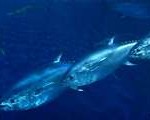
The paper estimates that the bluefin tuna spawning stock again approaches and even exceeds 300,000 tonnes that had been reached between the late ’50s and early ’70s,
and that was reduced to about 150,000 tonnes in the first decade of XXI century. Read More
http://fis.com/fis/worldnews/worldnews.asp?l=e&ndb=1&id=56066






 Conservationists are trying to determine a way forward after the annual Commission for the Conservation of Antarctic Marine Living Resources (CCAMLR) meeting ended on Friday. Representatives of 25 nations gathered in Hobart over 10 days for the CCAMLR meeting. The Antarctic Ocean Alliance, a coalition of 30 environmental groups including , said Russia and China blocked,,,
Conservationists are trying to determine a way forward after the annual Commission for the Conservation of Antarctic Marine Living Resources (CCAMLR) meeting ended on Friday. Representatives of 25 nations gathered in Hobart over 10 days for the CCAMLR meeting. The Antarctic Ocean Alliance, a coalition of 30 environmental groups including , said Russia and China blocked,,, 



























